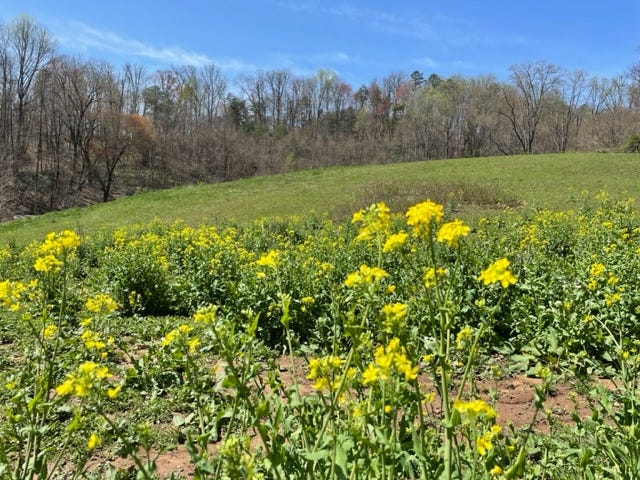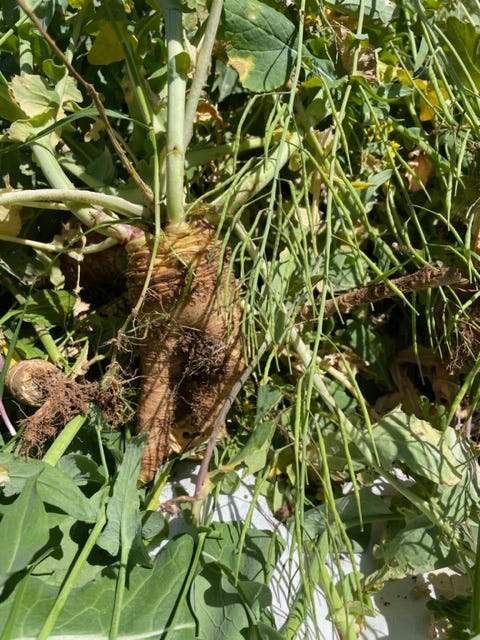The land had been untended for quite some time and since Winchesters do their level-headed best to work with the land, instead of trying to force it to do our bidding, Poppa decided to hitch the disc plow to the tractor and re-seed the pasture. This, of course, meant a trip to the hardware store for seed. It’s rare that farmers read the label on grass seed as we know there is always a small amount of “inert matter,” meaning sticks, tiny stones, and dust; items that typically won’t germinate. However, in our case, the inert matter also contained something that would prove to be a huge problem years later.
Turnip seeds.
Turnip seeds are the size of mustard seeds, and for the uninitiated like me, it’s easy to confuse the two plants, especially when they put forth yellow blooms and prematurely go to seed because of weather conditions. At first, there were only a smattering of plants jutting up from the lush pasture. However, as the years ticked away the plants I thought were golden mustard put forth long tap roots.
There are many things growing on this earth which you must rip out by the roots in order to eradicate. Rogue turnips rank high on that list. What amazes me is that the plant can grow upward of three feet tall and produce the most beautiful yellow blooms which provides food for pollinators when they need it most. All this can happen while the core of the turnip is soft and rotten.
Goodness gracious, isn’t this an analogy of humans as well? How we put pretty faces on our lives while inside we are struggling to hide our rottenness.
“I’m gonna hitch up the disc plow, turn everything under, and re-seed the pasture,” Poppa proclaimed to which I replied.
“The plants are in full seed. I think if we take the tractor in there, we will just have more trouble next year.”
This is how I found myself standing in a field of golden blooms, bending low to the earth, pulling out the turnips who relinquished their grip from the land. Those who wouldn’t let go required me to cut them at the base. Beside me, I have mixed a concoction of industrial strength vinegar, dawn dish washing liquid, water, and salt and have readied the sprayer because I can’t apply anything more toxic than vinegar. Pollinators are everything to our survival. Those who have used the vinegar method knows this mixture works, fast.
The land needs more care than I can physically provide and only an hour has passed before I find myself exhausted. I’ve tossed the plants onto a torn bedsheet where I will drag them to the truck and drive them to feed dad’s chickens.
As I pull the heavy sheet behind me, I wish I had paid careful attention in February on those unseasonably hot days when those tap roots start growing deeper into the soil. I could have attacked the problem then, when the work was easy and the time more readily available without the demands of spring pressing on me.
Perhaps I’ll get the field gleaned of seeds, before they dry and burst forth. If not, one thing’s for certain, next year I’ll find myself here again.






